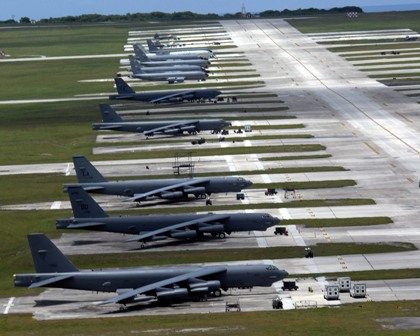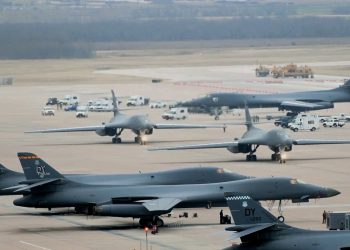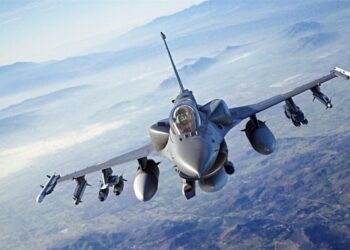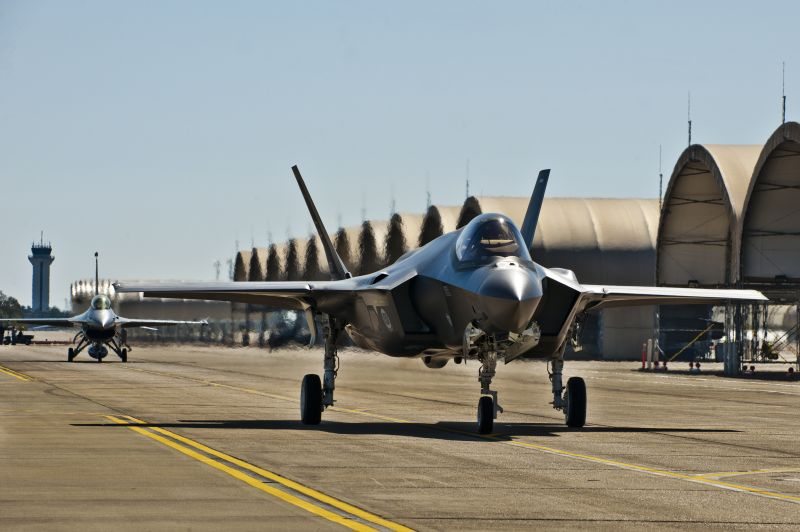The United States said it was flying training missions of nuclear-capable B-52 bombers over South Korea, in a clear signal to North Korea at a time of escalating military tensions.
The flights — part of annual joint South Korea-US military exercises — should be seen as underscoring US commitment and capacity to defend Seoul against an attack from the North, Pentagon spokesman George Little said.
In response to UN sanctions imposed after its third nuclear test last month, North Korea has warned of a “second Korean war” and threatened pre-emptive nuclear strikes on the South and the United States.
Little said a B-52 from Andersen Air Force base in Guam, flew over South Korea on March 8 as part of a military exercise dubbed “Foal Eagle.”
“The B-52 Stratofortress can perform a variety of missions including carrying precision-guided conventional or nuclear ordnance,” he said Monday.
B-52s have taken part in annual exercises before, but Little said the Pentagon wanted to underline their use this time given the current, heightened tensions.
“We’re drawing attention to the fact that we have extended deterrence capabilities that we believe are important to demonstrate in the wake of recent North Korean rhetoric,” he said.
That message was echoed in Seoul on Monday by visiting Deputy Defense Secretary Ashton Carter, who promised to provide South Korea with every available military resource “offered by the US nuclear umbrella”.
Another B-52 training mission was carried out Tuesday, Yonhap cited a South Korean military official as saying.
“The bomber struck a simulated target in (eastern) Gangwon Province,” the official said.
In a major announcement on Friday, the United States unveiled plans to bolster its own missile defenses in direct response to the growing threat posed by North Korea.
Defense Secretary Chuck Hagel announced that 14 more interceptors would be stationed in Alaska, increasing by almost half the 30 already deployed along the California and Alaska coastlines.
Hagel said the defence upgrade was designed to “stay ahead of the threat” from North Korea, which is still believed to be years from having a missile capable of carrying a nuclear warhead to the continental United States.
The US initiative did not go down well in Beijing, where the Chinese foreign ministry warned that any effort to increase military capacity would only serve to “intensify antagonism”.
China is North Korea’s sole major ally and main trading partner.
Although it backed the latest UN sanctions against Pyongyang, analysts say China’s main concern is to avoid sudden regime collapse in Pyongyang that might result in a US-allied, reunified Korea.
Despite its growing isolation and the stepped-up international pressure, North Korea insists its plan to develop a viable nuclear deterrent is “unshakeable” and non-negotiable.
On the first day of negotiations for a conventional weapons treaty at UN headquarters on Monday, the North’s deputy UN ambassador Ri Tong-Il proclaimed the North’s “very proud and powerful” position as the latest nuclear weapons state.
Ri also denounced what he termed a US policy of “nuclear blackmail” that he insisted would “in the long run give birth to more nuclear weapons states”.











